Onomastic research at the University of Debrecen

Thanks to its professors, highly qualified teachers and researchers, the Institute of Hungarian Linguistics of the University of Debrecen is one of the most significant and also internationally acknowledged bases of onomastic research—excelling especially in the research of place-names—not only in Hungary, but also in the entire Carpathian Basin. Onomastic research became one of the main fields of interest from the 1960s on, under the leadership of the internationally acclaimed researcher of onomastics and Finno-Ugrist, Professor Béla Kálmán. In the course of the past decades onomastic research has clearly established itself as the main profile of the institute both in the area of training and research.
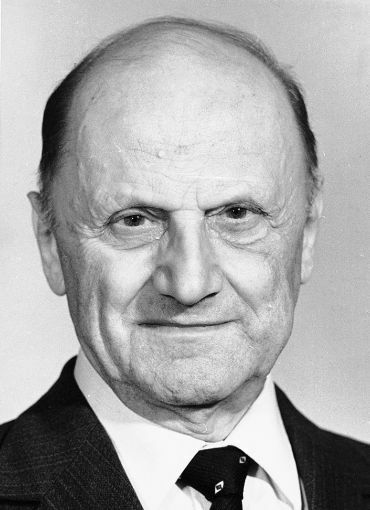
The Elite Research University Programme launched in 2010 covers five scientific disciplines, including linguistics. Within the five distinguished main fields of research 118 research groups obtained funding, three of these being affiliated with the Institute of Hungarian Linguistics.

The institute’s high scientific potential and specifically the prestige of onomastic research is clearly reflected by the fact that within the framework of the Research University Programme two research groups were established in the institute focusing on questions of onomastics:
the Research Group on Onomastics (under the guidance of Valéria Tóth) and
the Research Group on the History of Linguistics and Onomastics (led by István Hoffmann).
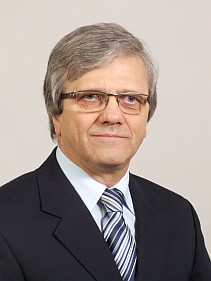

In 2013 the Research Group on Hungarian Language History and Toponomastics (University of Debrecen—Hungarian Academy of Sciences) was established here.

Of the ten experts of the Department of Hungarian Linguistics six colleagues study onomastics, their work being supported also by a group of seven scientific assistant researchers.
Within the doctoral school of linguistics, the Post-graduate Programme in Hungarian Linguistics plays a vital role in ensuring the continuous involvement of younger generations of scientists: over the past decade fourteen PhD students have obtained their doctoral degree in onomastic research. The doctoral degree awarded by the Academy—the highest possible Hungarian scientific qualification—was also obtained by Professor István Hoffmann in the field of onomastic research. In addition, Professor Hoffmann is also president of the Department of Onomastics, established in 2000, of the most prominent Hungarian association in the field of linguistics, the Society of Hungarian Linguistics.
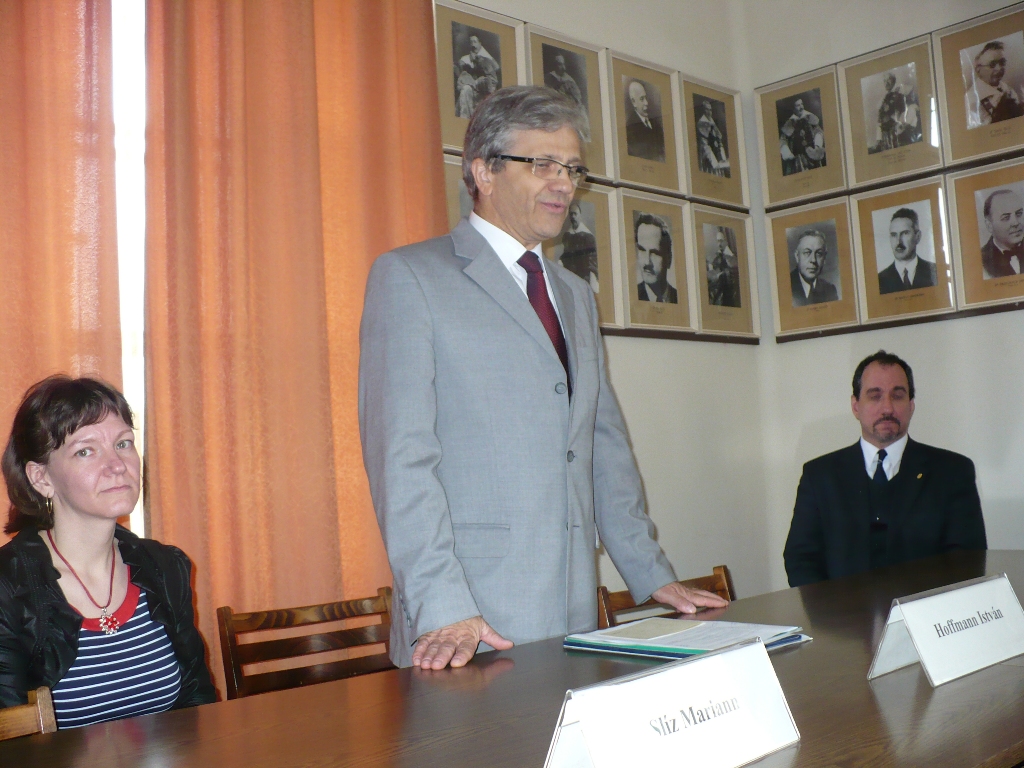
The Department of Hungarian Linguistics of the University of Debrecen awards the Lajos Kiss Prize founded in 2005 in memory of the outstanding linguist and member of the Academy, Lajos Kiss, who was an emblematic figure of 20th century Hungarian linguistics, especially onomastics and Slavistics. Hungarian or foreign researchers under the age of 40 are eligible for the Lajos Kiss Prize whose novel scientific achievements contribute significantly to the results of Hungarian onomastics (specialising in the field of either personal or place names). On the first two occasions the Board awarded the Lajos Kiss Prize to linguists from Debrecen:
in 2006 to Valéria Tóth,
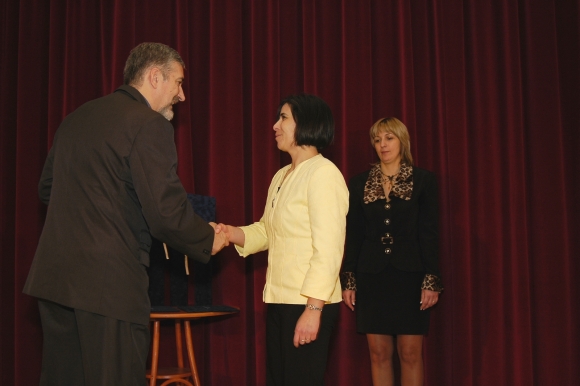
(photo from another event!) http://mnytud.arts.unideb.hu/hirek2010.php
and in 2008 to Anita Rácz.


The Institute of Hungarian Linguistics also founded some periodicals dedicated to onomastics with the purpose of creating a platform for the publications of the experts studying this field. The periodical entitled Helynévtörténeti Tanulmányok [Studies on the History of Place Names] published in Hungarian (thus meant primarily for the Hungarian academic audience) usually publishes the lectures presented at the annual Seminar on the History of Place Names with a focus on the Carpathian Basin. Up to date 9 volumes have been issued.

The periodical Onomastica Uralica written in English (more recently English and Russian) by an international team of authors and editors—in co-operation between Debrecen and Helsinki, with partly thematic and partly periodical-like issues—specialises in onomastic questions of Uralian languages. Its primary objective is to bring together onomastic researchers of Uralian languages, but it takes into consideration also the connections between Uralian and other, especially Indo-European, languages. So far 10 volumes of the periodical have been published.

The institute also publishes the series A Magyar Névarchívum Kiadványai [Publishings of the Hungarian Onomastic Archive], which includes monographs, dictionaries and studies on place names: http://mnytud.arts.unideb.hu/nevarch.php or http://nevarchivum.unideb.hu/nevarchivum/

The onomastic discipline also occupies an important place in the university curriculum: for majors in Hungarian language 5 to 6 courses are announced on onomastics per year. We also strive to involve students in scientific research by offering the most talented ones regular summer job opportunities and one-month scholarships. In the summers of 2010, 2011 and 2013 25 to 30 students participated in our projects.
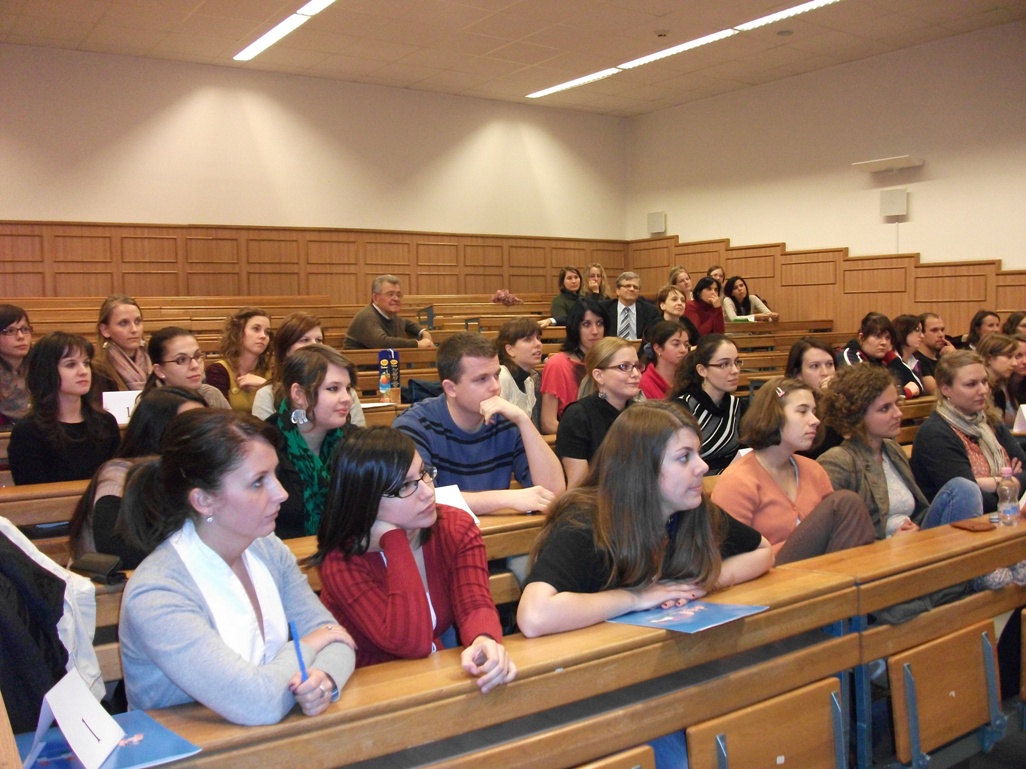
The institute cherishes close relationship with several Hungarian and foreign institutes of higher education and research. From all these the most intensive ties—especially in connection with the editing of Onomastica Uralica—are the connections with universities of Eastern and Northern European countries, but in recent years co-operation was reinforced also with Western countries. As a result, in 2011 a collaboration agreement with the German university of Mannheim in connection with a joint research project was concluded: in 2010 we launched an onomastic research programme called Magyar Digitális Helynévtár [Hungarian Digital Toponym Registry], in the framework of which we are working on the compilation of a public database to be available on-line, namely a data warehouse comprising the place names of the Carpathian Basin (www.mdh.unideb.hu).
In addition, the Institute of Hungarian Linguistics of the University of Debrecen plays a vital role in the organisation of onomastic sessions at international conferences and congresses: e.g. as a rule, the organisers of the Congress of Hungarian Studies and the Finno-Ugric Congress invite researchers from Debrecen to conduct the symposia on onomastics.
The institute has acquired great expertise at organising large-scale international congresses: in 1990 it was the sole organiser of the International Finno-Ugric Congress which attracted some 1,000 participants, while in 2006 it was the co-organiser of the International Congress of Hungarian Studies attracting an audience of several hundred.
Topic of the congress:
Locality and globality in the world of names
The central topic of the congress will be the presentation of the linguistic position that proper names occupy in our present globalized world. Proper names as linguistic universals are an ancient linguistic category as old as language itself. They were probably created by the communicational situation in which—relying on linguistic signs fostering distinction— humans wanted to mark the things that were most important in their immediate environment. In fact this ancient function is the most important reason for the existence and use of proper names even today. Nevertheless, at the same time proper names may be the most characteristic linguistic representations of the global linguistic situation that have evolved up to our times. It is not only that communication in our times makes the ever more intensive use of proper names inevitable, but it also endows these with ever newer functions, continuously creating new types and sorts of names.
The wide-ranging central topic of the congress offers a number of possible approaches for speakers. Different questions of onomastic theory will come to the foreground, such as the situation of the variable relationships between particular types of names, their continuous interactions and changes. The presentation of the systematic character of names and their manifestation in different linguistic environments calls both for the study of phenomena and the accurate, thorough analysis of particular names. Besides the (historic and descriptive) aspects traditionally found in linguistics, new aspects may also be raised that have come to the fore over recent decades: e.g. socio- and psycho-onomastic or even cognitive frame sets; and, besides all these, even related disciplines, such as linguistic politics, or different approaches of applied science may come to contribute to our knowledge concerning proper names.
As for the structure of the scientific programme of the congress, we suggest a division of the lectures into three main types. Invited keynote plenary speakers will deal with questions of outstanding significance. In accordance with ICOS tradition, the selection of the presentations in the particular sessions shall be defined according to the topics to be handled by the participants of the congress. Furthermore, we also suggest organising symposia: at these events, participants deal with questions and specific themes defined in advance. The board of organisers shall call on some experts to organise and conduct the symposia. In turn, the selected experts will invite the speakers of the symposia themselves, by defining the topic of the given symposium. This form of discussion enables researchers to elaborate the issues of the highest relevance to them in a highly focused manner. The process may lead to results that are less likely to evolve during presentations in the individual sessions, and which may be even worth publishing in an independent collection of studies.
At the onomastic congress we wish to ensure as wide participation of the researchers as possible. We strive to also involve fields and linguistic areas that so far have been underrepresented at congresses. Luckily the participation of researchers from Eastern European countries including Hungarians has become increasingly active over the past few years, yet sadly this does not apply to representatives from the successor states of the former Soviet Union, despite the fact that these countries are distinguished by their highly intensive and valuable onomastic research work. Hopefully the good relations of the Institute of Hungarian Linguistics of the University of Debrecen with the researchers of the regions in question may promote their involvement in the work carried out by the onomastic congresses.
The official languages of the congress are English, German and French.
Program of the Congress
Debrecen, 27 August – 1 September 2017
27 August Sunday
15.00–20.00: Registration
17.00–20.00: Meeting of ICOS Board
28 August Monday
8.30–10.00: Registration
8.30–10.00: Meeting of Editorial Board of Onoma
10.00–12.00: Opening Session and Plenary Session
12.00–14.00: Opening Reception
14.00–15.30: Lecture Sessions
15.30–16.00: Break
16.00–17.30: Lecture Sessions
18.00–20.00: Meeting of ICOS Bibliography Group
29 August Tuesday
8.30–10.30: Lecture Sessions
10.30–11.00: Break
11.00–12.30: Lecture Sessions
12.30–14.00: Lunch
14.00–15.30: Lecture Sessions and Symposia
15.30–16.00: Break
16.00–17.00: Plenary Session
17.30–20.00: Meeting of ICOS Terminology Group
17.30–20.00: Presentation of Books
30 August Wednesday
Excursion Day
31 August Thursday
8.30–10.30: Lecture Sessions
10.30–11.00: Break
11.00–12.30: Lecture Sessions
12.30–14.00: Lunch
14.00–15.30: Lecture Sessions and Symposia
15.30–16.00: Break
16.00–17.00: Plenary Session
17.30–19.00: Presentation of the Society of Hungarian Linguistics, Department of
Onomastics
1 September Friday
8.30–10.30: Lecture Sessions
10.30–11.00: Break
11.00–12.30: Lecture Sessions
12.30–14.00: Lunch
14.00–17.00: ICOS General Meeting
18.00–22.00: Closing Session and Banquet
Financial resources
The following resources are available for the financing of the congress:
- a) The financial fund established for the organisation of scientific congresses (Hungarian Academy of Sciences). Resources from this fund would certainly be provided for the ICOS congress to be organised, especially since this would be the first time it is being organised in Hungary.
- b) Financial support from the Hungarian Academy of Sciences via its regional committee (Debrecen Academic Committee).
- Remarks: Naturally, we can’t apply for the financial support until after a (positive) decision in Glasgow. However, our expectation is that we would receive 20,000 to 30,000 Euros.
- c) City and county governments regularly support conferences of such importance: on the one hand by direct financial support and on the other hand by leasing conference facilities at a discount.
- d) The University of Debrecen, on whose campus the event will mainly take place, is
- also regularly supporting the organisation of congresses by making available the necessary facilities.
Rooms available for the congress
In the area of the campus the following meeting rooms are available:
- one room for 300 people two rooms for 200 people one room for 150 people
- fifteen rooms for 100–120 people
- fifteen rooms for 30–40 people.
Meeting rooms are available for the purposes of the congress in the Kölcsey Centre, one of the largest conference centres of Eastern Europe: one large meeting room with a seating capacity for 1,180 people, or for receptions for up to 780 guests. Furthermore, for individual sessions, the centre offers smaller rooms for groups of 30 to 70 or 90 to 150 people, respectively. From the university the location can be reached within 20 minutes by tram, or roughly 30 minutes on foot.


Registration fees
Registration fees (excursions are not included, banquet and receptions are included)
for ICOS members: € 100 (early registration), € 120 (standard registration)
for other congress particiants: € 120 (early registration), € 140 (standard registration)
for students: € 60
for accompanying persons: € 50
(All prices are current as of 2014.)
Structure of the scientific committee
coordinator: VALÉRIA TÓTH (University of Debrecen, Hungary)
president: ISTVÁN HOFFMANN (University of Debrecen, Hungary)
co-president: TERHI AINIALA (University of Helsinki, Finland)
secretary: ERZSÉBET GYŐRFFY (University of Debrecen, Hungary)
members: ELENA L. BEREZOVICH (Ural Federal University, Ekaterinburg, Russia; Russian
Academy of Sciences, Moscow, Russia)
ANDREA BÖLCSKEI (Károli Gáspár University of the Reformed Church, Budapest, Hungary)
BARBARA CZOPEK-KOPCIUCH (Institute of Polish Language Polish Academy of
Sciences, Crakow, Poland)
ELWYS DE STEFANI (University of Leuven, Belgium)
JOAN TORT DONADA (University of Barcelona, Spain)
SHEILA EMBLETON (York University, Toronto, Canada)
TAMÁS FARKAS (Eötvös Loránd University, Budapest, Hungary)
ADRIAN KOOPMAN (University of KwaZulu-Natal, South Africa)
SÁNDOR MATICSÁK (University of Debrecen, Hungary)
KATHARINA LEIBRING (Institute for Language and Folklore, Uppsala, Sweden)
ANITA RÁCZ (University of Debrecen, Hungary)
PAVEL ŠTĚPÁN (Academy of Sciences of Czech Republic, Prague, Czech
Republic)
SIMON TAYLOR (University of Glasgow, Scotland)
CHRISTIAN ZSCHIESCHANG (Leipzig Centre for the History and Culture of East
Central Europe, Leipzig, Germany)
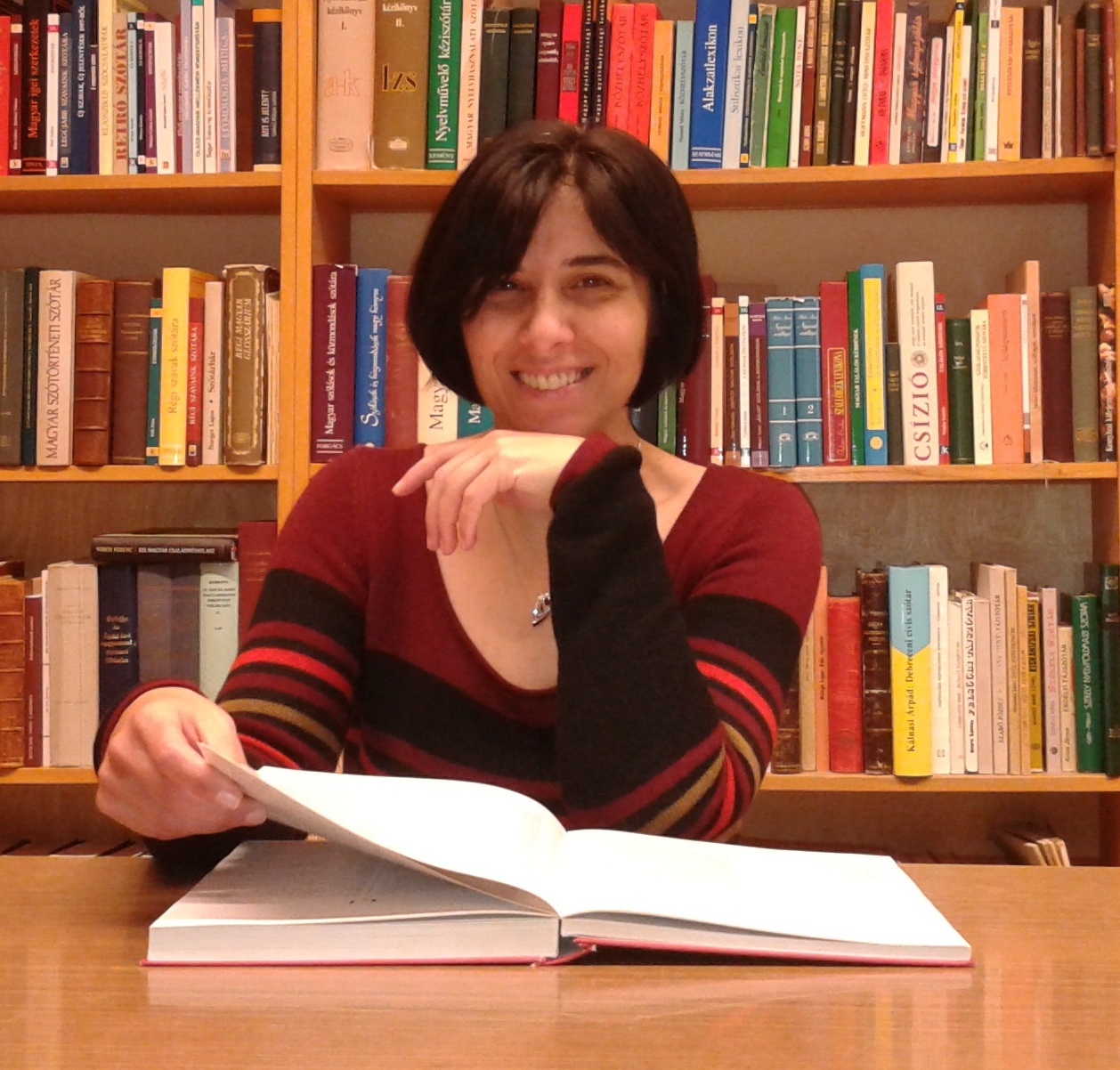




No comments:
Post a Comment